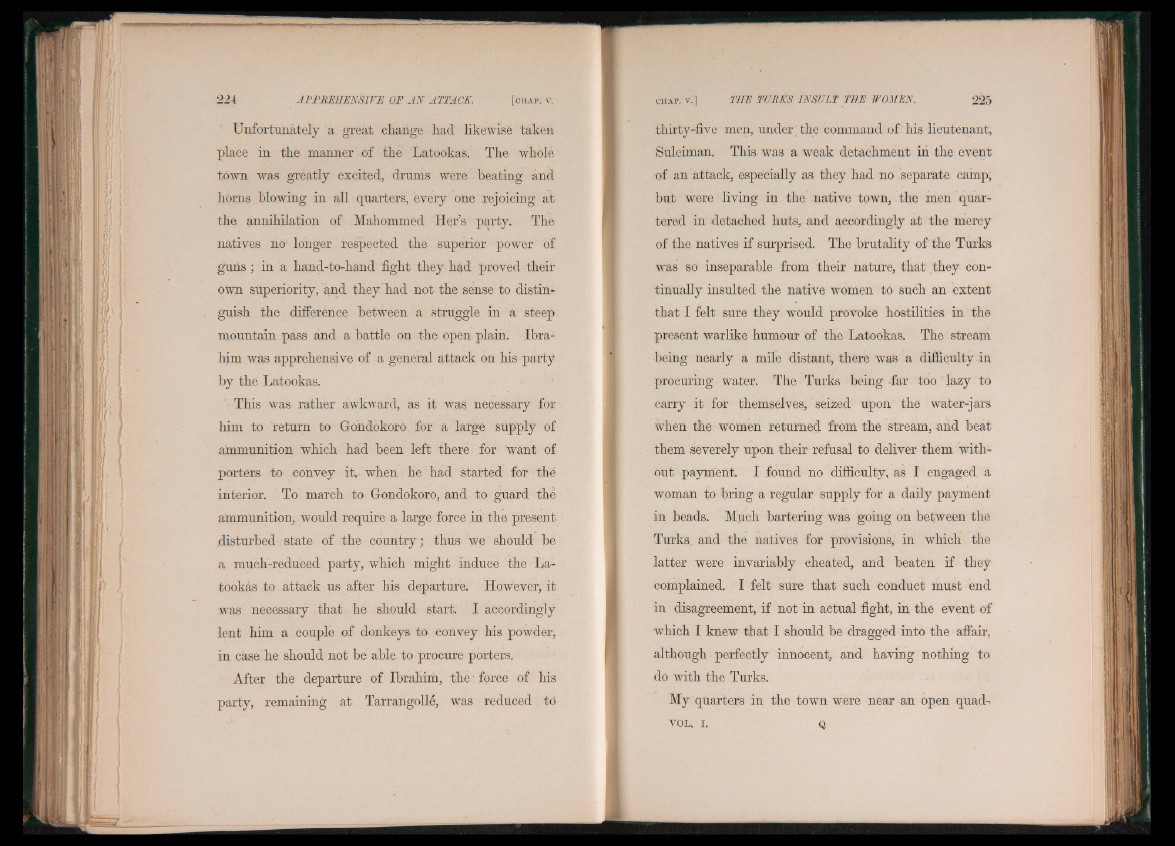
Unfortunately a great change had' likewise taken
place in the manner of the Latookas. The wholè
town was greatly excited, drums were beating and
horns blowing in all quarters, every one rejoicing at
the annihilation of Mahommed Her’s party. The
natives no longer respected the superior power of
guns ; in a hand-to-hand fight they had proved their
own superiority, and they had not the sense to distinguish
the difference between a struggle in a steep
mountain pass and a battle on the open plain. Ibrahim
was apprehensive of a general attack on his party
by the Latookas.
This was rather awkward, as it was necessary for
him to return to Gondokoro for a large supply of
ammunition which had been left there for want of
porters to convey it,-when he had started for the
interior. To march to Gondokoró, and to guard thè
ammunition, would require a large force in the present
disturbed state of the country; thus we should be
a much-reduced party, which might induce the Latookas
to attack us after his departure. However, it
was necessary that he should start. I accordingly
lent him a couple of donkeys to convey his powder,
in case he should not be able to procure porters.
After the departure of Ibrahim, the i force of his
party, remaining at Tarrangollé, was reduced to
thirty-five men, under the command of his lieutenant,
Suleiman. This was a weak detachment in the event
of an attack, especially as they had no separate camp;
but were living in the native town, the men quartered
in detached huts, and accordingly at the mercy
of the natives if surprised. The brutality of the Turks
was so inseparable from their nature, that they continually
insulted the native women to such an extent
that I felt sure they would provoke hostilities in the
present warlike humour of the Latookas. The stream
being nearly a mile distant, there Was a difficulty in
procuring water. The Turks being far too ! lazy to
carry it for themselves, seized upon the water-jars
when the women returned from the stream, and beat
them severely upon their refusal to deliver them without
payment. I found no difficulty, as I engaged a
woman to bring a regular supply for a daily payment
in beads. Much bartering was going on between the
Turks, and the natives for provisions,- in which the
latter were invariably cheated, and beaten if they
complained. I felt sure that such conduct must end
in disagreement, if not in actual fight, in the event of
which I knew that I should be dragged into the affair,
although perfectly innocent, and having nothing to
do with the Turks.
My quarters in the town were near an open quad-
VOL. I. Q